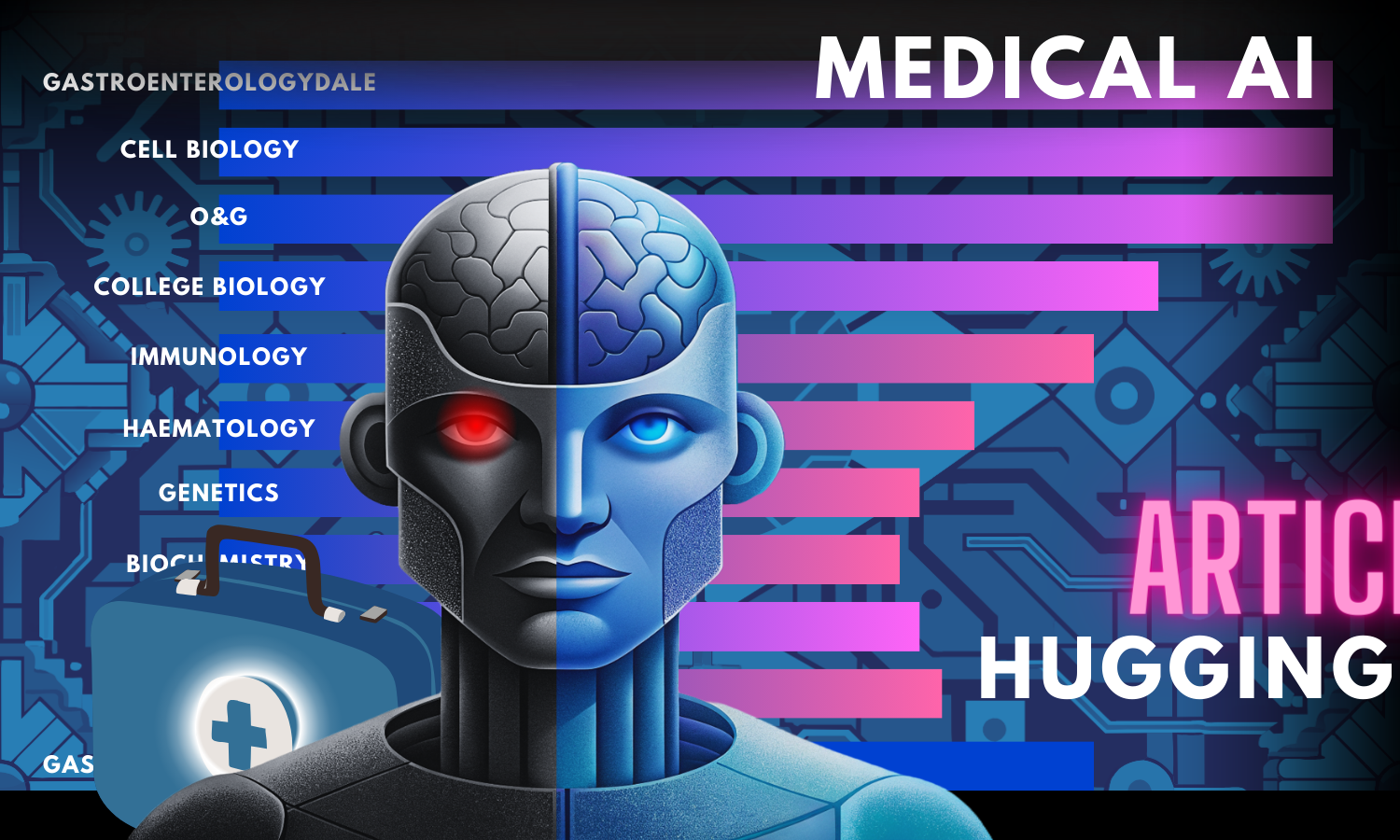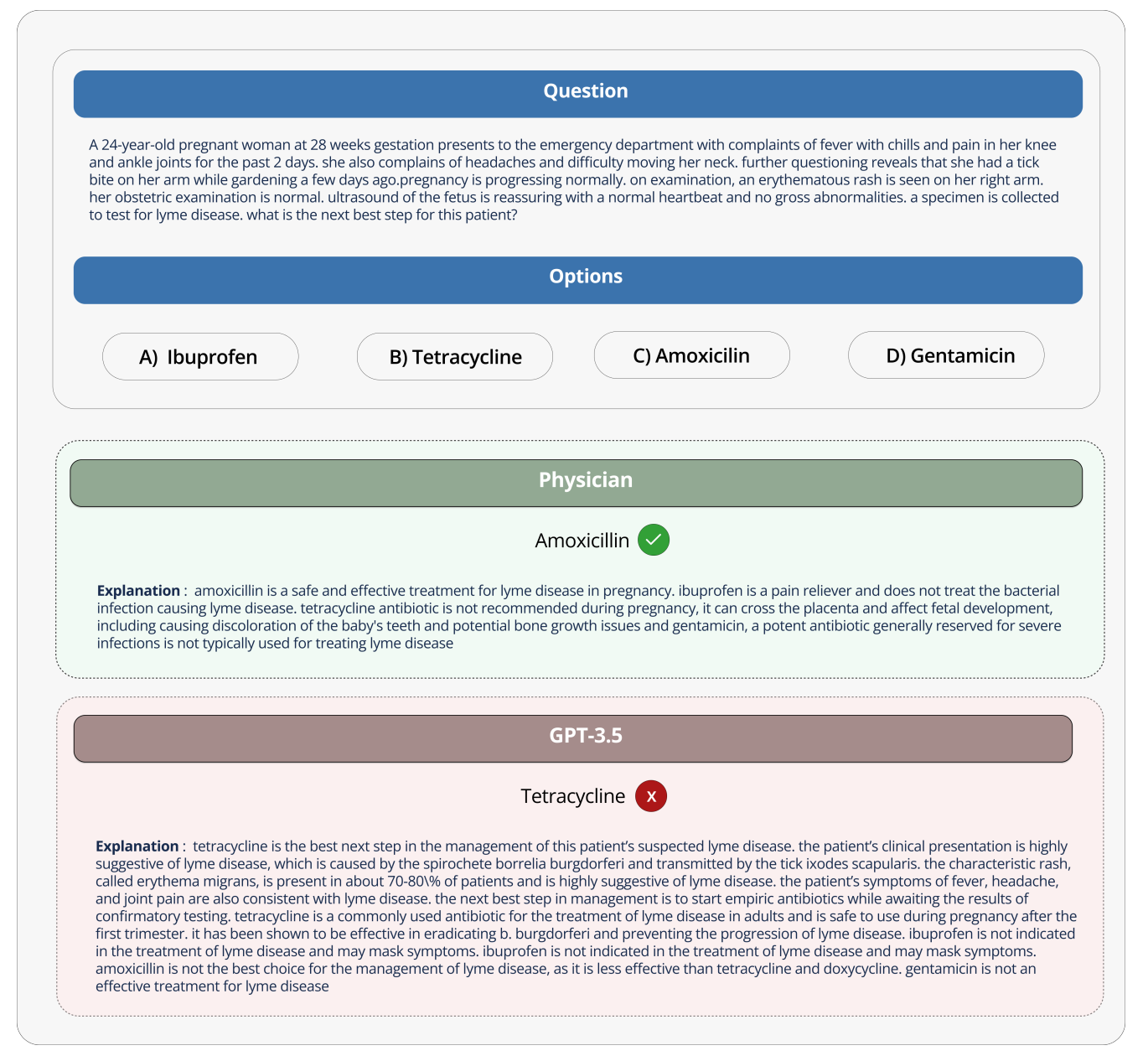 |
| "MEDICAL AI" and an illustration of two arms embracing. |

L
arge language models (LLMs) have been on Artificial Intelligence (AI) trends for a few years, like GPT-3, GPT-4, and Med-PaLM 2, Gemini. Do whatever you want with your work, coding or writing every thought, but make sure the correct answer or work is not misleading as much as possible. And it can also be dangerous if used in the medical field, challenging accuracy.
Misinformation guides incorrect healthcare decisions. GPT-3 mistakenly recommended tetracycline for a pregnant patient.
Seeing this problem, Huggingface has launched the Large Language Models in Healthcare's open Medical-LLM leaderboard.
The purpose of this language is to make LLMs perform well and accurately in medical tasks, which are difficult in the medical domain. It is specially designed for the medical domain; its dataset will contain everything related to healthcare.
and safety Including MedQA (USMLE), MedMCQA (Indian medical exams), PubMedQA (scientific biomedical literature), and subsets of MMLU related to medicine and biology. focusing on scientific biomedical literature.
Preliminary insights from the leaderboard show that commercial models like GPT-4 and Med-PaLM-2 consistently achieve high accuracy across various medical datasets. However, open-source models are not far behind, demonstrating competitive performance despite their smaller size.
"Ensuring the accuracy and reliability of LLMs in healthcare is paramount," says Dr. Jane Smith, a healthcare AI researcher. "The Open Medical-LLM Leaderboard provides a much-needed platform to identify strengths and weaknesses in current models, driving advancements and ultimately improving patient care."
The submission process for the leaderboard involves converting model weights to a safe-tensor format, ensuring compatibility with AutoClasses, and making the model publicly accessible. The team behind the leaderboard is also working on incorporating a wider range of medical datasets and enhancing evaluation metrics.
Open Life Science AI, the organization behind the leaderboard, aims to foster collaboration, innovation, and progress in the AI-assisted healthcare domain. They invite researchers, clinicians, policymakers, and industry experts to join their vibrant community and contribute to the future of AI in healthcare.


